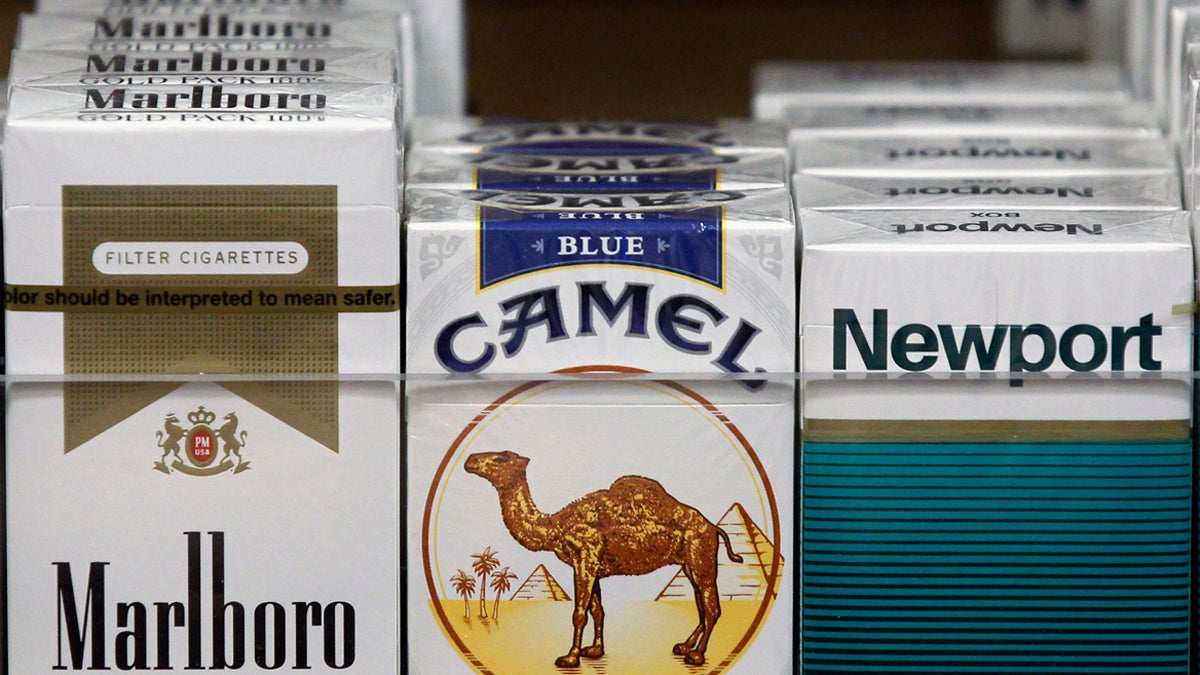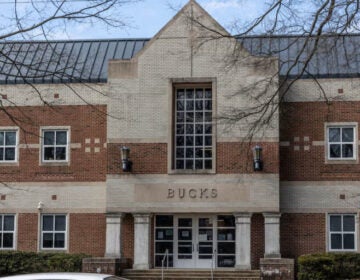In a huge victory for Philly schools, lawmakers reach consensus on cigarette tax
Listen
Now that the Pennsylvania Legislature has passed a Philadelphia cigarette tax of $2, smokers in the city will be paying an average of $8 or $9 per pack. The extra tax revenue will go to the city school district. (AP file photo)
Philadelphia schools received a tremendous victory in Harrisburg Tuesday as Senate lawmakers passed a long-sought $2-per-pack cigarette tax that district leaders expect to generate $49 million in revenue this school year for the city district.
In a 39-to-11 vote, senators adopted the language approved by the House of Representatives Monday. This was key, as the two chambers disagreed for much of the summer over other elements unrelated to the cigarette tax that were tucked into the omnibus legislation.
The House stripped those provisions out last week. Tuesday, understanding the urgency of the district’s fiscal needs, Senate leaders moved the bill without the ancillary measures or amendments that would have kicked the bill back to the House.
Gov. Tom Corbett too lauded the action, saying he will sign the bill into law as soon as it reaches his desk.
“I am pleased that both chambers have taken action on this legislation so that the Philadelphia School District and, more importantly, the students of Philadelphia, can benefit from it,” Corbett wrote in an official release.
Corbett officially has 10 days to ink the legislation. A spokesman couldn’t say exactly when he will receive the bill, saying that will be up to the legislature.
The district says it needs to begin receiving cigarette-tax proceeds by Oct. 1 in order to avoid more cuts. It will take five days after Corbett signs the measure for the Treasury Department to implement the levy.
Without cigarette tax revenue, district leaders say more than 1,000 layoffs would have been necessary.
“We are extremely pleased and relieved that the cigarette tax legislation has been passed by the Senate and the House and it is awaiting the governor’s signature,” said Superintendent William Hite and School Reform Commission Chairman Bill Green in a dual statement.
The pair specifically thanked a list of lawmakers: Sens. Anthony Hardy Williams, D-Philadelphia; Dominic Pileggi, R-Delaware; Shirley Kitchen, D, Philadelphia; Reps. Cherelle Parker, D-Philadelphia; Mike Turzai, R-Allegheny; Mike Vereb, R-Montgomery; William Adolph, R-Delaware; Dave Reed, R-Indiana; John Taylor, R-Philadelphia; as well as Mayor Michael Nutter and City Council President Darrell Clarke.
In an official statement, Clarke expressed “sincere relief and gratitude to the Pennsylvania House and Senate for passing this long-awaited funding measure.”
Speaking on the phone from the Clinton Global Initiative in New York City, Nutter called the action a “fantastic victory,” but said people need to be reminded that City Council originally passed the measure in the spring of 2013.
“We cannot forget that we have much work to do to get full and fair funding for educating Philadelphia’s students and all students in Pennsylvania, and that requires a student-weighted funding formula,” said Nutter.
State Sen. Vincent Hughes, D-Philadelphia, joined in Nutter’s restrained enthusiasm.
“We should be very clear that this new stream of local funding does not scratch the surface of what the School District of Philadelphia truly needs to offer real opportunities to all of our students,” said Hughes.
Assuming the governor signs, the next question will be to see how much revenue the tax ends up generating. Opponents say tax avoidance will become prevalent as smokers seek to save money by purchasing cigarettes out of county or state, or through black markets.
In the city, a pack of cigarettes now costs about $7.
The district calculated its revenue projections by choosing the midway point between the city’s high estimate and an opponent’s low-ball math.
The measure as passed by the Senate includes a “sunset provision” that allows lawmakers to end the levy after five years. The bill also includes an amendment that makes it easier for applicants to create a new charter school in Philadelphia, an addition lawmakers say was necessary to garner support in the House of Representatives.
Both the House and Senate passed the cigarette tax in early July, but disagreements trapped the omnibus measure in a game of legislative pingpong.
Senate leaders wanted provisions that would allow hotel taxes to be hiked in some counties and allow cities such as Scranton and Erie to apply for tax credits for community revitalization improvement zones (CRIZ).
If the House and Senate had reached consensus in early July, the levy would have generated an additional $13 million for schools this year under the district’s revenue projections.
WHYY is your source for fact-based, in-depth journalism and information. As a nonprofit organization, we rely on financial support from readers like you. Please give today.





